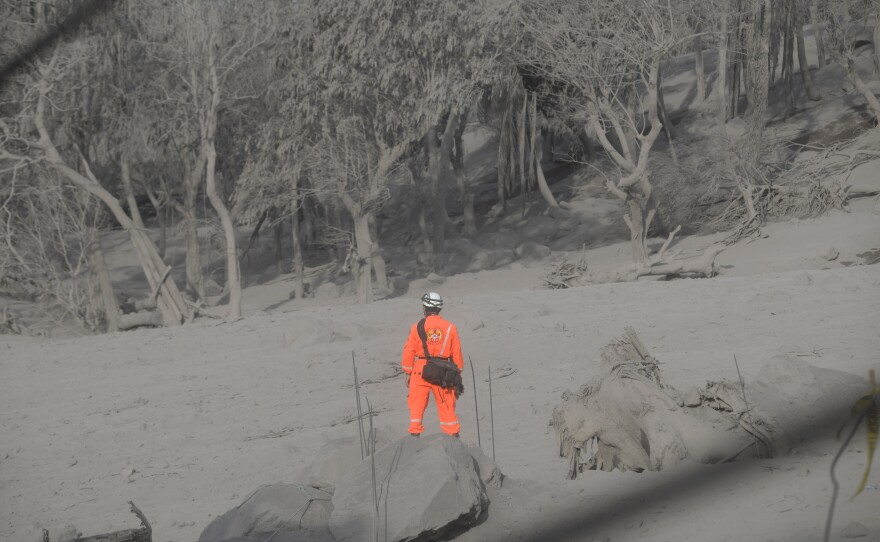Updated at 7:30 p.m. ET
The death toll from Guatemala's Fuego volcano rose to at least 99 on Wednesday, with many people still missing, after two strong explosions that scattered ash over a wide area and displaced thousands of residents from their homes.
The scenes of devastation were accompanied by heartbreaking stories of entire families devastated by the disaster — the biggest eruption from the mountain in four decades.
This is Jose. On Sunday, he left his town of El Rodeo #Guatemala said goodbye to his Mother and never saw her again. He lost 9 family members in Sunday’s #VolcanDeFuego eruption including his parents and continues to search for their bodies 3 days later @NBCLatino pic.twitter.com/PAo69zU0ZF
— Annie Rose Ramos (@AnnieRoseNews) June 5, 2018
The Associated Press spoke with Lilian Hernandez, who has 36 family members missing and presumed dead — aunts, uncles, cousins, her grandmother and two great-grandchildren — in the town of San Miguel Los Lotes.
"My cousins Ingrid, Yomira, Paola, Jenifer, Michael, Andrea and Silvia, who was just 2 years old," the distraught and weeping woman told the news agency.
Tuesday afternoon, as ash from the volcano reached 16,000 feet, Guatemala's seismology and volcanology institute warned of a new pyroclastic flow of hot, toxic gases and debris from the volcano, one of the most active in Central America.
Volcanic material was descending the mountain's south side, prompting an evacuation order and the closure of a nearby national highway, the AP reports.
In the aftermath of Guatemala’s Volcano of Fire eruption that roared into the tightly knit villages on the mountain’s flanks, entire families were devastated. https://t.co/LfmmMThcih pic.twitter.com/Z1K6o6GdWQ
— The Associated Press (@AP) June 5, 2018
David De Leon, Guatemala's national coordinator for disaster reduction, said the volcano's increased activity prompted evacuations of nearby communities, an exodus that the AP said was "setting off a panicky flight by people that stalled traffic in some areas."
"We now have an accounting with names and towns where people have gone missing and we have a figure, which is 192 people who we have unaccounted for," Disaster Relief Agency chief Sergio Cabañas told the Agence France-Presse news outlet on Tuesday.
Copyright 2021 NPR. To see more, visit https://www.npr.org. 9(MDAxNzg0MDExMDEyMTYyMjc1MDE3NGVmMw004))











